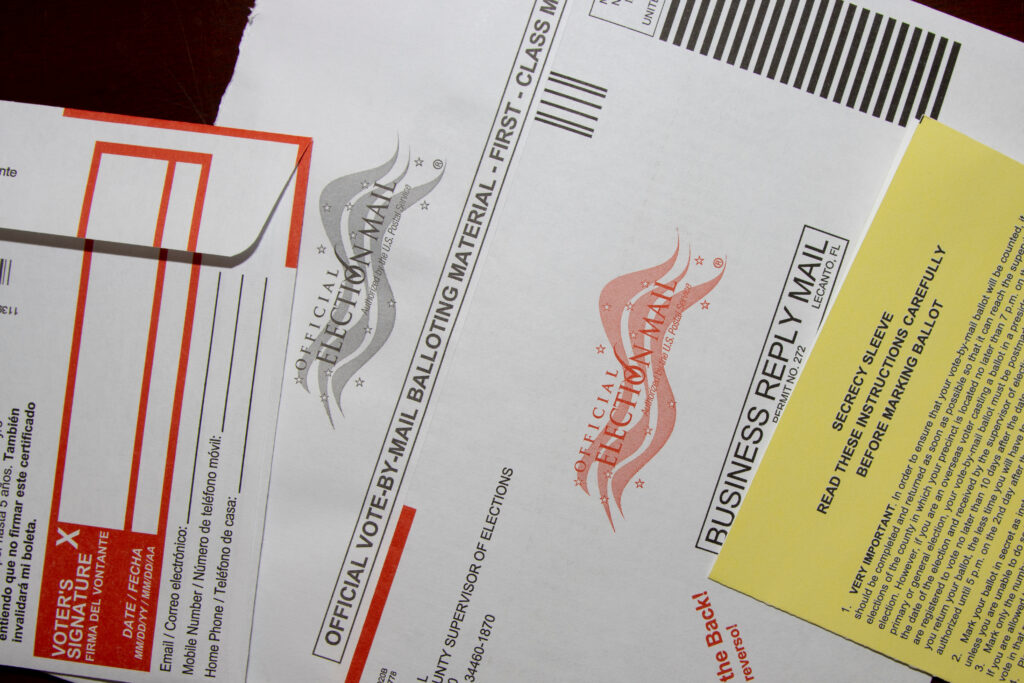Undated and Incorrectly Dated Mail-in Ballots Will Not Be Counted In Pennsylvania, 3rd Circuit Rules
WASHINGTON, D.C. — Mail-in ballots that are missing a date or have an incorrect date will not be counted in Pennsylvania due to a 2-1 opinion issued earlier today by the 3rd U.S. Circuit Court of Appeals.

This decision comes out of a case brought by nonpartisan organizations challenging a Pennsylvania regulation that requires counties to reject mail-in ballots that either are missing a date on the outer return envelope or have an “incorrect” date (such as a voter’s birthday instead of the day the envelope was signed).
Ahead of the 2022 midterm elections, the plaintiffs alleged that rejecting ballots with a missing or incorrect date violates the Materiality Provision of the Civil Rights Act — which prevents disenfranchising a voter for a reason that is not material to their eligibility such as a small error or omission — because the date is not consequential in determining if a voter’s ballot was timely cast. Instead, Pennsylvania uses the time the ballot was received and stamped by the county board to determine when the ballot was received.
Republicans quickly intervened to defend the date regulation arguing that private groups and individuals cannot sue under the Materiality Provision and that the date provision is constitutional. In a statement released March 27 after the court’s ruling RNC Chairman Michael Whatley said: “This is a crucial victory for election integrity and voter confidence in the Keystone State and nationwide.”
In November 2023, a federal district court sided with the plaintiffs and struck down this requirement after finding that it does violate the Materiality Provision. “Federal law prohibits a state from erecting immaterial roadblocks, such as this, to voting,” the court held.
This decision was a major victory for voters, but was unfortunately reversed today. The panel held that the Materiality Provision only applies when the state determines who may vote, but does not extend to rules like the date regulation.
The court today concluded that since the “date requirement for casting a mail-in ballot is not covered by, and thus does not violate, the Materiality Provision, we reverse the District Court’s order and remand for it to consider the merits of the Plaintiffs’ equal protection challenge.”
The case is not over yet as one of the plaintiffs’ claims was sent back to the district court for further consideration. In addition to their Materiality Provision claims, the plaintiffs claim that the date regulation violates the Equal Protection Clause of the 14th Amendment because it imposes inconsistent rules on different voters that the plaintiffs argue are unsupported by any legitimate government interest.
Democrats disproportionately rely on mail-in voting in the Keystone State. In a special election held last month that resulted in Democrats retaining control of the state House, Democrats disproportionately voted by mail compared to Republicans.
Rejection of mail-in ballots often impacts lower income and non-white communities. Reporting from Votebeat found that in Philadelphia specifically, “voters from heavily nonwhite and lower-income communities in Philadelphia are more likely to have their ballots rejected due to simple mistakes.” This decision stands to impact thousands of voters ahead of 2024.
As the new leader of the RNC, Whatley described the Republican playbook for 2024, saying they will “continue to fight and win for election integrity in courts across the country ahead of the 2024 election.” According to Democracy Docket’s 2023 litigation report, those opposing voting rights, including national Republicans, won only 27% of the time.
Learn more about the case here.
This article was last updated on March 28 at 5:29 p.m. EDT with RNC Chairman Michael Whatley’s statement.